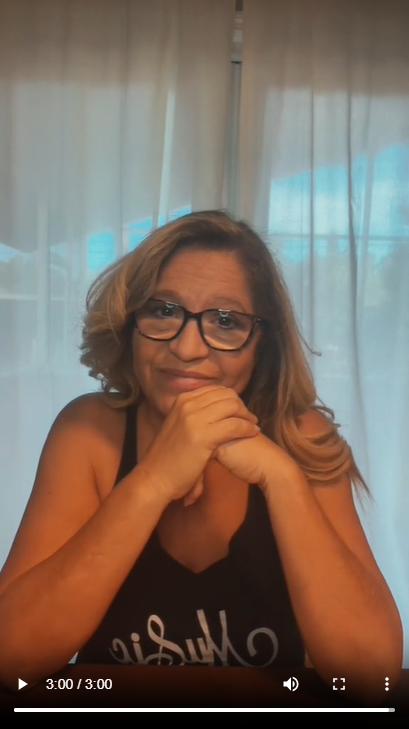The Nine Relationships in a Marriage – And Why We Stopped Expecting Them All From One Person
Recently, I listened to an insightful podcast by relationship educator Libby Sinback, in which she introduced a powerful concept: in every long-term marriage or committed relationship, there are actually nine different types of relationships happening simultaneously. It was called 9 Relationships of a Modern Marriage.
The idea immediately resonated with me—not only because of its clarity, but because, after 36 years with my husband (and 35 of those married), I’ve come to a similar understanding in my own life. Our marriage works today because we no longer expect one person—each other—to fulfill every relational role.
In fact, letting go of that expectation may have been the most loving decision we’ve ever made.
According to Sinback, these nine relational dynamics include friendship, romance, sexual partnership, financial collaboration, shared household management, co-parenting, caregiving, bed-sharing, and familial connection. Some couples are fortunate enough to feel fulfilled in all nine areas by one person. And if that’s your experience, it’s absolutely something to be celebrated.
But for many of us—including myself and my husband, Everett—expecting one person to consistently meet all of these needs for the rest of our lives proved not only unrealistic, but limiting.
And that’s where polyamory came in—not as a reaction to a failing marriage, but as an intentional, honest path forward.
Everett is not a naturally romantic person. He doesn’t express love through poetic gestures or public displays of affection. But he is an extraordinary companion, a steady co-(dog)parent, and a reliable household and financial partner. We live well together. We co-manage our shared life, our responsibilities, and our future. He is, in every practical sense, my anchor.
But for a long time, I felt like I was waiting for something more—romance, flirtation, sexual connection, the spark that seemed out of reach. Eventually, I realized the gap between what I needed and what he could naturally give wasn’t a failing. It was simply a difference. And differences, in a loving relationship, deserve to be named—not judged.
Today, I maintain multiple relationships, each of which fulfills different roles in my life.
I share romance and social connection with Sapio. We date, we attend events, we hold hands in public and engage in romantic gestures. Interestingly, we’re not sexually involved, but we share emotional intimacy and sleep next to each other once a week. That, for me, is deeply fulfilling.
I experience sexual chemistry with other partners where physical desire and mutual attraction are active. I no longer try to force that dynamic in relationships where it doesn’t naturally exist.
With Chiron, I have what I call a soul connection. We don’t see each other often—maybe once a year—and we only exchange messages a few times annually. But our bond is enduring. He is a spiritual presence in my life, always in orbit even when distant.
My relationship with Robin, my romantic sisterhood, is another vital part of my life. We’re not sexually involved, but we’re undeniably in love. Our connection is tender, loyal, and affirming. It defies conventional labels, but fits us perfectly.
Meanwhile, Everett has his own relationships as well. He sees his girlfriends a few times a month. They bring different kinds of energy into his life—romantic, emotional, mostly sexual—and that allows him to show up in our marriage with more ease and less pressure to be someone he’s not.
A question I hear often, especially online, goes something like this: “If you need to date other people, why not just get a divorce?”
I understand where that question comes from. Many people equate exclusivity with commitment. They believe needing anything outside a marriage is a sign of failure within it.
But here’s my counter-question: if two people are honest about who they are, and still choose to stay together—why wouldn’t we call that success?
Everett and I aren’t trying to fit an outdated mold. We’re writing our own script. We don’t pretend to be passionate soulmates in every domain of life. We know which roles we fulfill for each other, and we allow the rest to be met in ways that are healthy, respectful, and transparent.
We’re not subtracting from our marriage. We’re expanding the possibilities of what it means to stay together.
If you’re in a long-term relationship, it may be worth exploring Libby Sinback’s framework. Ask yourself if you’re fulfilled in those nine relational areas. Reflect on whether you and your partner are aligned on where your strengths lie. And if there are areas where one or both of you are longing for more—maybe it’s not a problem. Maybe it’s an invitation to evolve.
This doesn’t mean polyamory is the answer for everyone. It’s not a solution for dysfunction. It’s not an escape hatch. And it’s certainly not easy. But if you’re both willing to be honest—and you’re grounded in love, respect, and clear agreements—it might be a door to more, not less. More connection. More freedom. More honesty. More joy.
Marriage doesn’t have to look the way it did for your grandparents to be meaningful. Love doesn’t become less real when it’s shared. In fact, when practiced with care, ethical non-monogamy can deepen the love you already have—by relieving the pressure to be everything, and allowing everyone to be more fully themselves.
For Everett and me, releasing the expectation of total fulfillment from each other has brought us closer, not further apart. We live with more peace. We speak with more honesty. We love with more clarity.
And if our story helps someone else feel seen, relieved, or inspired—that’s all the more reason to keep sharing it.

